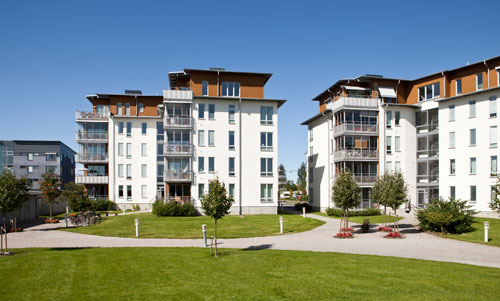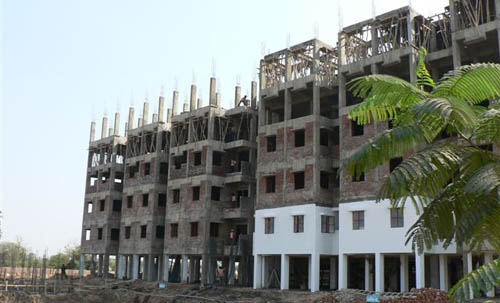
Demand-supply gap to uplift residential realty market
The anticipated demand is likely to exert an upward pressure on property prices especially in markets like NCR, Mumbai and Bangalore where the demand-supply gap is high.

The anticipated demand is likely to exert an upward pressure on property prices especially in markets like NCR, Mumbai and Bangalore where the demand-supply gap is high.

One of the biggest problems afflicting the sector is its high level of debt. The debt load of 11 listed real estate companies stands at Rs.38,500 crore.

It may be momentary down because of rising interest rate, macro economic hue, affordability issues borne out of demand-supply mismatch and overall market sentiments, but forecast for the residential real estate is definitely robust.

A Knight Frank report suggests revenues of real estate companies have dropped by 19 per cent and profits have declined by 70 per cent, over the past four financial years, since 2007-08.

Market forces of demand and supply are the most potent determinants of price and the developments in the real estate industry during year 2011 is the latest example.

ArthVeda Fund Management (AVFM), a fund management arm of Dewan Housing Finance Corporation (DHFL), India’s 3rd largest mortgage finance company, has launched its second real estate fund – ArthVeda Star.

The real estate sector in Punjab is likely to witness sluggishness in the run up to Assembly elections in the state next month.

The global real estate fund of Morgan Stanley is in talks with Mumbai-based Sheth Developers to invest $100-125 million in a residential project in Mumbai, sources with direct knowledge of the development said.

Godrej Properties has entered into a joint venture to develop a group housing project in Undri, Pune.

Peninsula Land and Canada based Brookfield Asset Management have formed a 50:50 JV to launch a real estate fund for investments in India.
